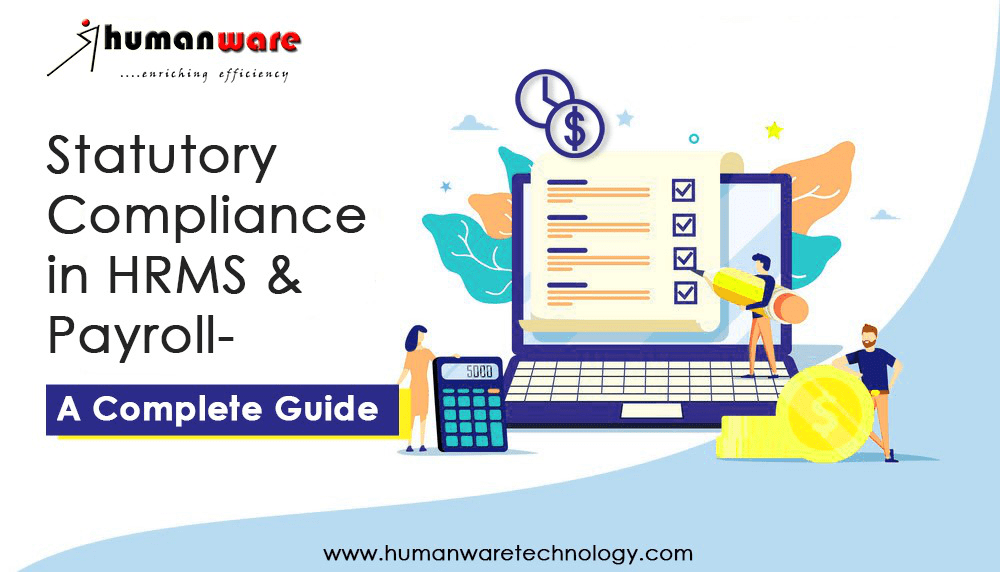
Statutory Compliance in HRMS & Payroll - A Complete Guide
In the human resources space, statutory compliance refers to the legal document that an organization should abide by handling its employees. Every country has a multitude of state and central labor or employee laws that organizations need to comply with.
In fact, a lot of time and money is spent on ensuring that all the compliances are met that include but are not restricted to wages, professional taxes, maternity, etc. Since it requires regulations and rules pertaining to employment, statutory compliance becomes one of the biggest HR risks for a work environment.
Thus, it becomes vital for employers to be well-versed with the various statutory compliances associated with employment regulations and work rules.
Why Statutory Compliance and Regulation Important ?
It is important for small as well as large enterprises to stick to statutory compliances to safeguard their business from the legal tussle. Here, complete knowledge of compliances becomes essential to mitigate the risks associated with non-compliance.
In today’s cut-throat business ecosystem, it could be very difficult for businesses to control statutory compliances without a good payroll or employee management system.
Now talking about India, there is an excess of statutory requirements that businesses in the country ought to adhere to for keeping away from any legal complexities. If a company fails to obey the required statutory compliance, it might incur hefty penalties. Worst case, it can cost your whole business.
Statutory Compliances for Payroll in India
Here are some common statutory needs that businesses in India have to adhere to :
Minimum Wages Act:
This regulation requires fixing minimum wage prices for both unskilled and skilled laborers. It not only guarantees remuneration for minimal survival needs of the laborers but also takes care of their medical, education, and other needs. The act is subject to state, statutory compliance is applicable for the remuneration of minimum wages to employees spread across multiple states. Humanware HRMS has a provision to map this challenging necessity with multi-location and geography support. Besides this, ‘overtime’ wages are also statutory needs as per the Factory Act and Payment of Wages Act. It includes industries such as development and manufacturing.
TDS Deduction :
Every employer has to deduct TDS under section 192 of the IT (Income Tax) act 1961 if an employee’s pay is higher than the amount that is exempt from taxation. Employers also have to maintain Form no. 16 and 24Q. The following are some salary components affecting TDS deduction include investments, travel allowance, children’s education allowance, HRA, special allowance, and medical allowance, etc.
PF and ESI Fund Deduction:
ESI fund regulated by the ESIC is applicable to all those employees whose salary is 15,000 INR or less than that per month to offer medical and cash benefits to them and their families. PF (Provident Fund) is a mandatory contribution fund for the future of an employee for retirement purposes or for their immediate dependents in case of her/his death.
Gratuity :
It is the specific amount provided to employees by their employers when they leave their jobs after completing five successful years with the organization.
Professional Tax :
Employment or professional tax is a state-based tax. It is one of the statutory deductions from an employee’s gross income before computing their tax. Humanware HRMS is a cloud-based payroll solution that can take good care of all the aforementioned statutory compliance requirements in India for businesses of all sizes and verticals. The software allows you to manage ESI and PF preferences, professional tax, salaries, TDS and calculates salaries after all the required deductions automatically. It allows generating form 24Q and forming 16 with a single click of a button to help manage all the statutory requirements in an effortless and efficient manner